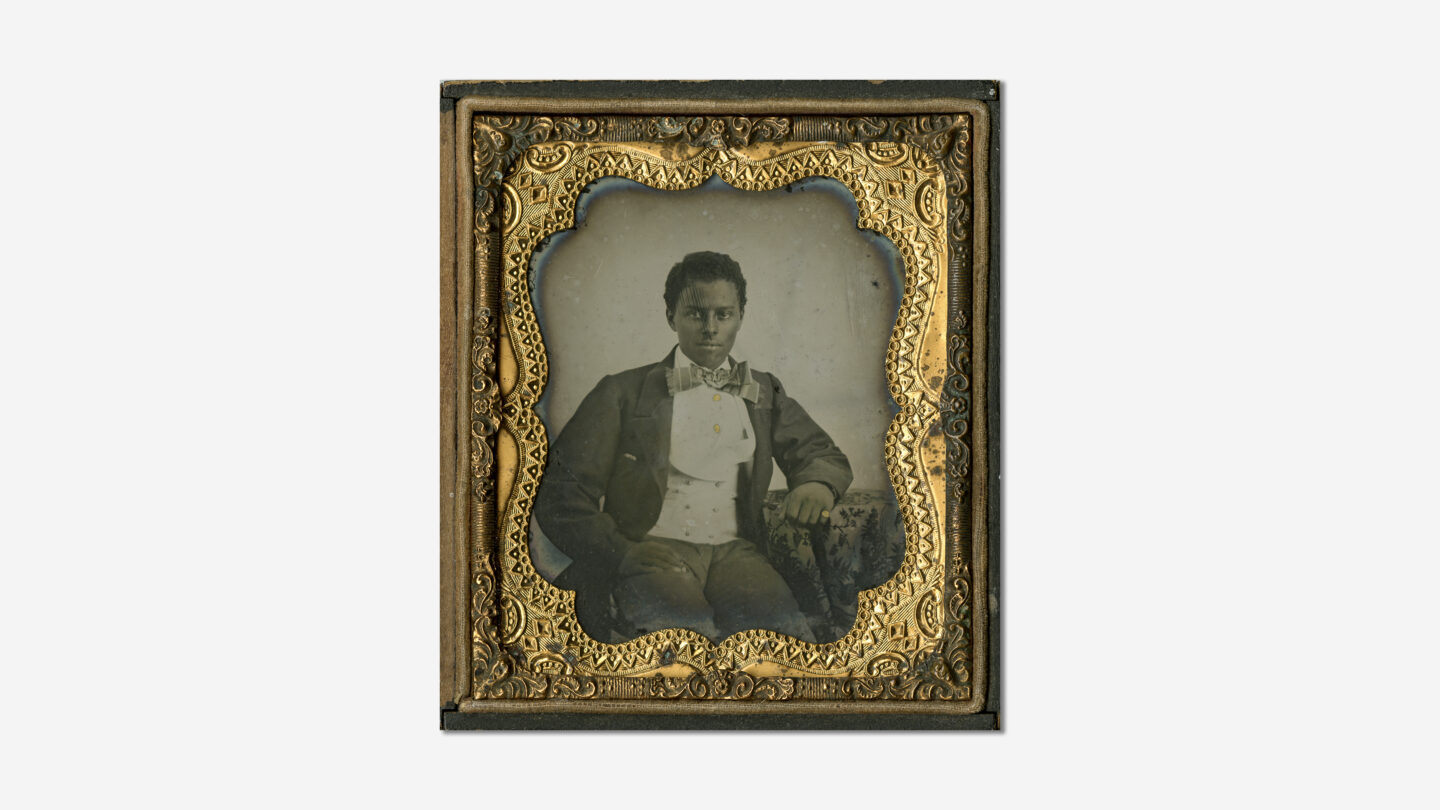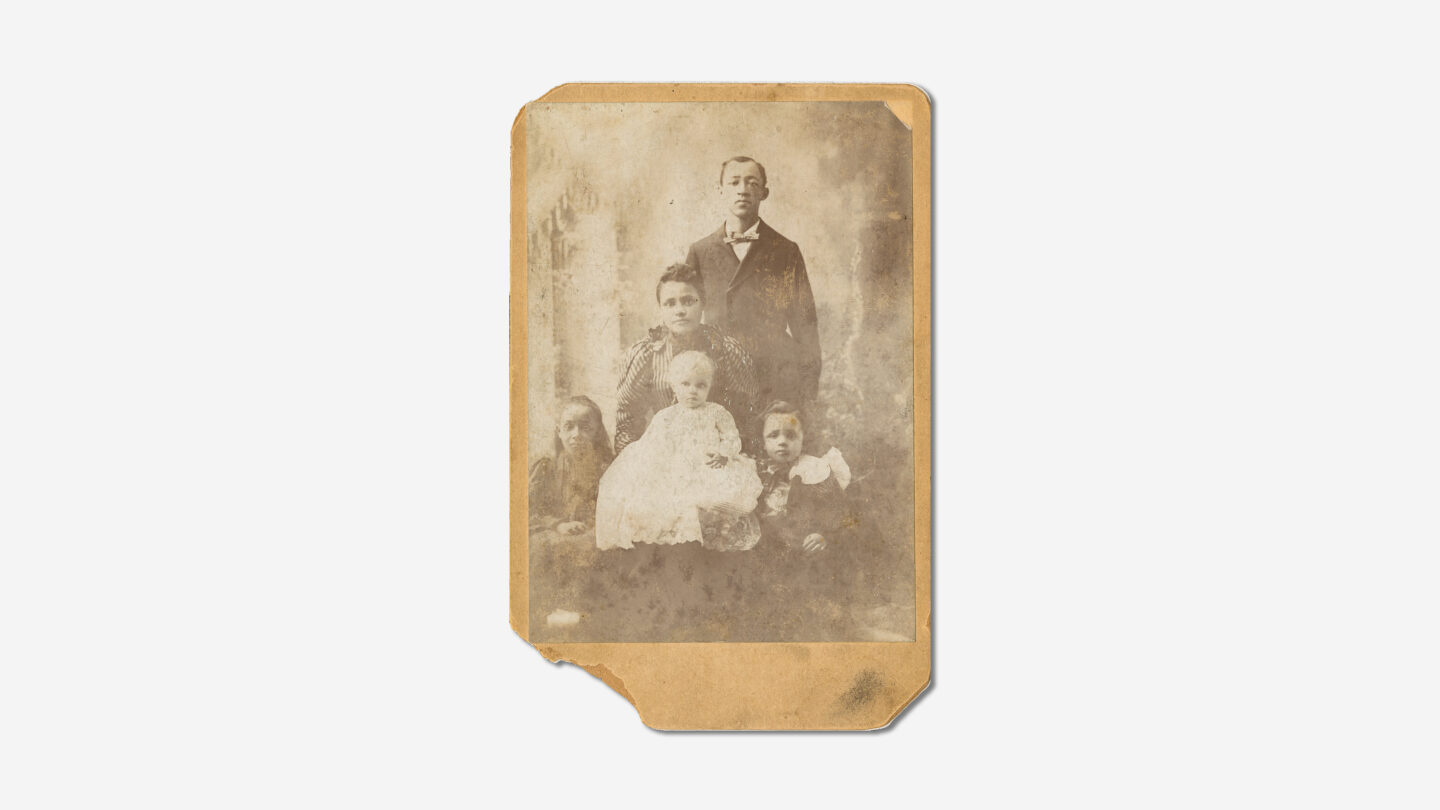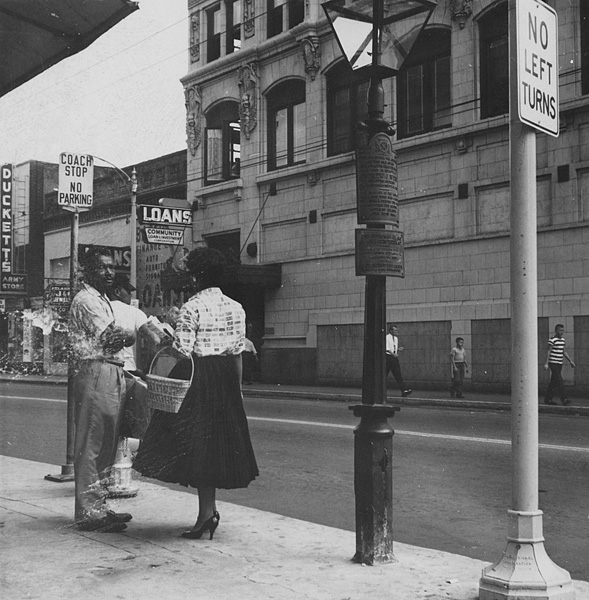
A seated Solomon Luckie poses for a photograph. Luckie Family Photographs, Kenan Research Center at Atlanta History Center.
Editor’s note: This blog post is part of a series exploring the history behind popular Atlanta street names. Is there a street name that you want to know more about? E-mail us at stories@atlantahistorycenter.com, and let us know.
If you have driven through downtown Atlanta, chances are you’ve been on Luckie Street. The street begins near Centennial Olympic Park where it intersects with Baker Street and continues until it becomes Tech Parkway at the intersection with North Avenue. Though the view as you traverse Luckie Street towards Midtown is unremarkable, the story behind the street name is fascinating.
It is a common misperception that Luckie Street gets its name from Solomon Luckie.* In fact, it is named for Alexander F. Luckie, an early resident who moved here in 1847, the year the city was named “Atlanta.” But Solomon’s story is more interesting, especially given the fact that everyone thinks it is named for him anyway – which is still a tribute to his memory.
In pre-Civil War Atlanta, Solomon Luckie was one of approximately 40 free Black or mixed-race individuals in the area. Luckie owned a bath and barber salon at the Atlanta Hotel (which was located near the current site of Underground Atlanta) and was on his way to becoming one of Atlanta’s wealthiest Black entrepreneurs. With his wife, Nancy Cunningham, Luckie raised a family of three children, Camilla, Lodusky, and Odie. Luckie made a good living with his business, proven by the fact that he was prominent enough to have professional portraits taken of himself and his wife.

Portrait of Solomon Walter Luckie, Sr.; Ellen Euphrasia Beale; Ambrosia Luckie; Solomon Walter Luckie, Jr.; and Charles Edgar Luckie. Luckie Family Photographs, Kenan Research Center at Atlanta History Center.
Despite Luckie’s success, there was a shadow over him in that his freedom was entirely conditional. To live in Atlanta at that time, free people of color needed a white sponsor, they had to pay a $1,000 ($32,000) fee to the city, and they had to obtain permission from the city council to engage in everyday activities, such as hosting visitors from out of town or starting businesses.
Even though these rules were incredibly restrictive, Luckie, like a surprising number of other free people of color, stayed in the South.
The freedmen who remained in the South often did so due to family ties in the region or doubt that life in the North would be any better. However, since a lot is not known about Luckie’s life beyond his immediate family and successful business, nothing can be said with certainty about why he stayed in Atlanta.
Luckie’s odds-defying path to success was abruptly cut short in 1864 during the Civil War when a U.S Army artillery shell burst near him, and shrapnel struck him as he leaned against a lamppost. Bystanders took Luckie to Atlanta Medical College, where he later died from his loss of blood.
Ironically, after the war, the lamppost where Luckie, a free Black man, met his demise became a celebrated Civil War memento, earning the nickname of the “Eternal Flame of the Confederacy.”

A photo from 1957 showing the lamppost on which Solomon Luckie leaned as he was struck by an artillery shell fragment during the Civil War. A. A. Hoehling, Atlanta History Photograph Collection, Kenan Research Center at Atlanta History Center.
Luckie’s children and wife survived to see the end of the war that killed him and freed their race. His children had children, and the Luckie family lived to see decades of successes and struggles for Black Americans. Although Solomon’s short life could not be considered free in many senses of the word, it did give him a rare glimpse into the potential for a more just Atlanta—one in which Black people could be residents defined by their merit, not property defined by their race.
*Atlanta History Center continues to research Solomon Luckie’s history as a free Black entrepreneur and his possible relationship to Alexander F. Luckie for whom the street is named. We will update this post with additional information as we learn more.

